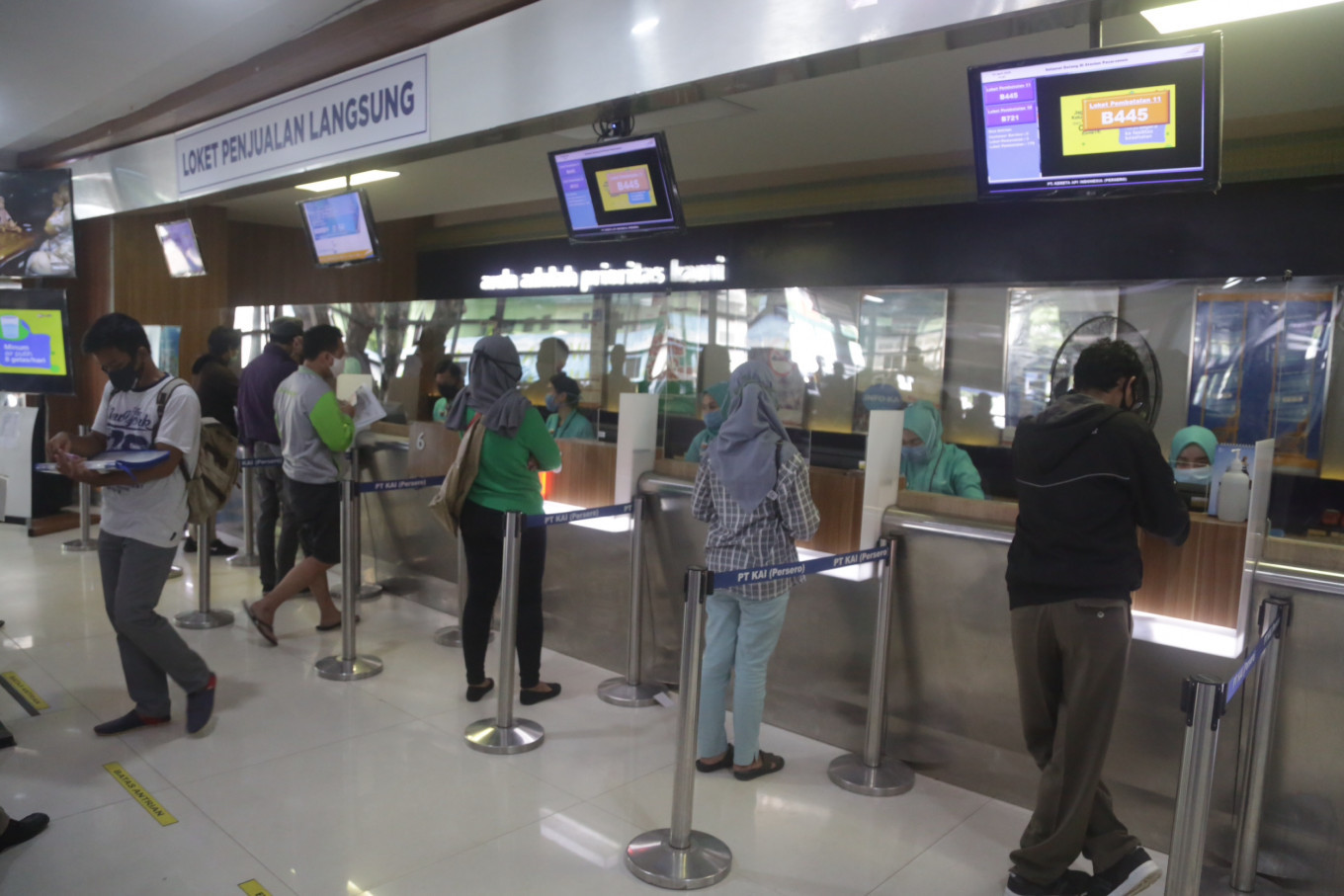Popular Reads
Top Results
Can't find what you're looking for?
View all search resultsPopular Reads
Top Results
Can't find what you're looking for?
View all search resultsConsistency matters
Inconsistency has typified the government’s responses to COVID-19, including in its ban on the decades-old mudik tradition.
Change text size
Gift Premium Articles
to Anyone
T
he government’s ban on the Idul Fitri tradition of mudik (exodus), which took effect Friday, has left many in tears and disappointment.
A batik seller and her husband had to bury their dream of celebrating the post-Ramadan festival with their three children in Bandar Lampung after they found there were no flights available to take them home from Soekarno-Hatta International Airport. Another woman was at a loss after the bus she was traveling on was forced to return to Jakarta, hundreds of miles away from her husband and children, who had been eagerly awaiting a reunion in their Central Java village.
Millions of people living in Greater Jakarta, the “red zone” of COVID-19 infection cases, will have to shelve all their plans arranged months ago for the Idul Fitri holiday. Many others had intended to leave the metropolitan area, having lost jobs and income, so they could at least survive with their families back home.
But policy is about choice. It cannot please everybody, but it must aim for the good of all. The blocking of many access points to and from Greater Jakarta and suspension of all passenger flights leaving and heading to Jakarta demonstrate the government’s commitment to enforcing the travel ban.
Read also: COVID-19: 'Mudik' ban catches travelers flat-footed As of Sunday, the virus has infected more than 8,800 people, killing over 740 of them. Only through effective restriction of human movement, particularly from red zones like Greater Jakarta, can Indonesia hope to win the fight against COVID-19. There is no other option available to flatten the curve than physical distancing, given the country’s limited health infrastructure and relatively few medical workers.
The government’s success in enforcing physical distancing measures will define Indonesia’s ability to mitigate the pandemic. Based on the University of Sydney’s agent-based model, countries can expect to contain the spread of COVID-19 if the level of compliance to restriction measures reaches 80 percent.
For Indonesia, the bar should be set higher, given that many had already left Greater Jakarta for their hometowns before the mudik ban came into effect. Reports of a significant increase in the number of infections in Central Java and East Java appear to correlate with the migration from Greater Jakarta earlier this month, when the government was reluctant to completely prohibit mudik.
Indeed, inconsistency has typified the government’s responses to COVID-19, including in its ban on the decades-old mudik tradition.
As Gadjah Mada University statistician Dedi Rosadi has warned, inconsistent implementation of the ban will only create new clusters of COVID-19 transmission and eventually prolong the health crisis, pushing economic recovery further back. Based on the probabilistic data-driven model, Dedi has predicted the pandemic will peak at the end of May with about 31,000 confirmed cases and subside by the end of July – an optimistic estimate compared to others.
Monitoring and assessing compliance to the mudik ban is therefore crucial, requiring cooperation between the central and local governments. Such collaboration is even more pressing as many will have to rely on government assistance to survive as a result of the restrictions.










